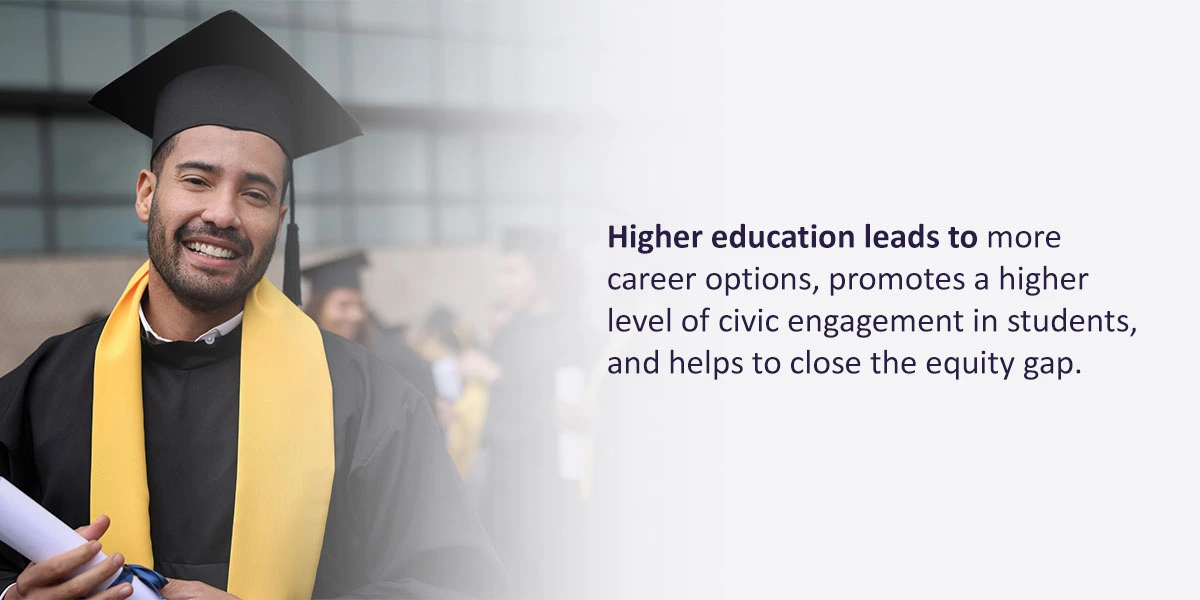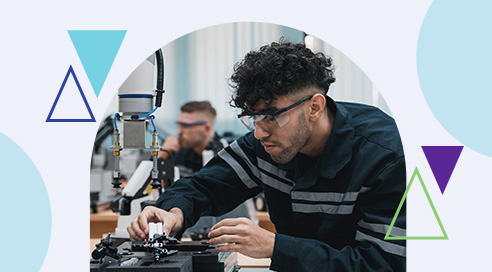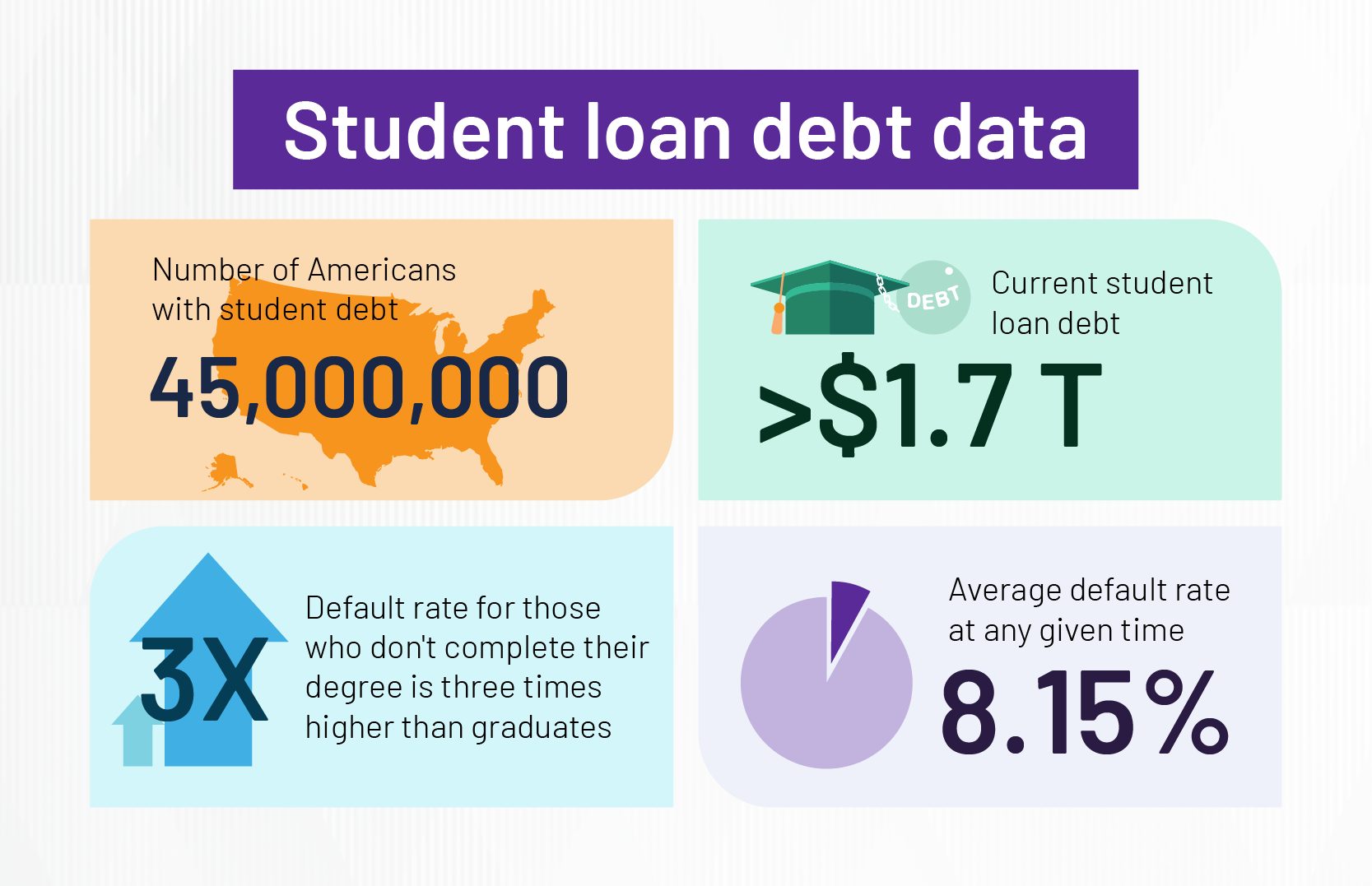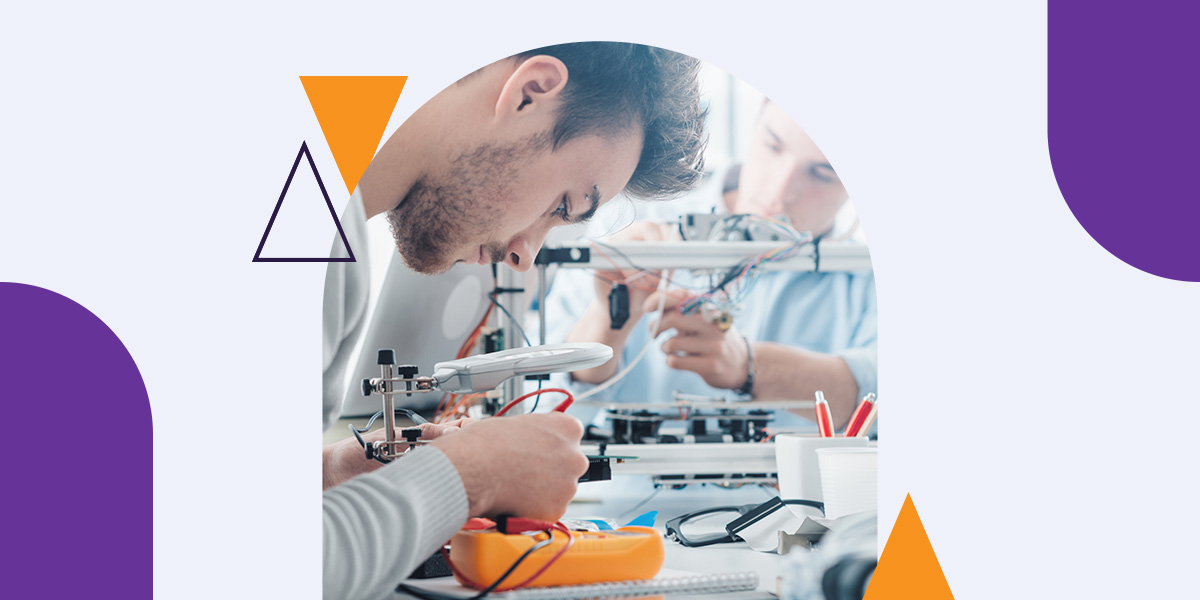
Educational equity is the measure of fairness and inclusion in academic systems. Today, advancing technologies like artificial intelligence (AI) complicate how higher education institutions provide equal learning opportunities for all students.
We are breaking down education equity and AI to help your college or university understand the key challenges and how to ensure these digital tools do not derail your improvement efforts.
The importance of equity in education amidst the rise of AI
Ensuring equity in education is integral to providing every student — no matter their race, socioeconomic standing, or background — has the resources and opportunities to succeed. Equity can help break the cycle of disadvantage for individuals in marginalized and underserved communities.
The rise of artificial intelligence has increased the importance of educational equity. These tools have the potential and power to revolutionize academia by providing more personalized learning experiences, harnessing the power of automation, and complementing advanced learning techniques. However, colleges and universities may exacerbate existing inequalities by using these tools without a strong emphasis on educational equity.
How artificial intelligence may affect equity in education
Before establishing policies to support educational equality and AI utilization, your institution must understand how these tools can impact your students.
The following are key ways AI can potentially compromise equity:
- Access: Artificial intelligence technologies can be highly beneficial for students, helping them personalize their learning, navigate research, and break down complex concepts from class. If some of your students do not have equal access to these tools, they will inevitably fall behind their advantaged classmates. All students should have access to the same AI solutions, allowing them to stay competitive and reap the same learning opportunities.
- Training: In addition to equal access to AI tools, students should also have similar training to learn how to leverage these technologies. If there is a skills gap keeping some of your students from taking advantage of AI solutions, it further perpetuates inequality. Students need to know how to effectively use the available tools and how to think critically about the information they convey.
- Biases: Another essential consideration for education equity and AI is the potential for bias in the algorithms. AI systems comb through huge volumes of data that can sometimes include nearly undetectable biases that impact the tool’s decision-making and deliverables. By ignoring unfairness and prejudice in the algorithm, your institution reinforces these ideals. Instead, take accountability for your AI solutions and make updates to mitigate discriminatory and biased results.
- Ethics: Artificial intelligence tools can raise ethical and privacy concerns for students. Higher education institutions must take action to ensure their student’s data is secure and there is full transparency in the AI solution’s data practices to ensure the most ethical, safe uses possible.
Addressing these issues is integral to leveraging the power of AI for student success rather than further deepening existing educational disparities at your institution.
What institutions can do to ensure equity in education in the age of AI
Colleges and universities must take action to support equal and fair opportunities for all students, regardless of their background. Explore different ways your higher education institution can prioritize educational equity in the age of artificial intelligence:
Address the digital divide
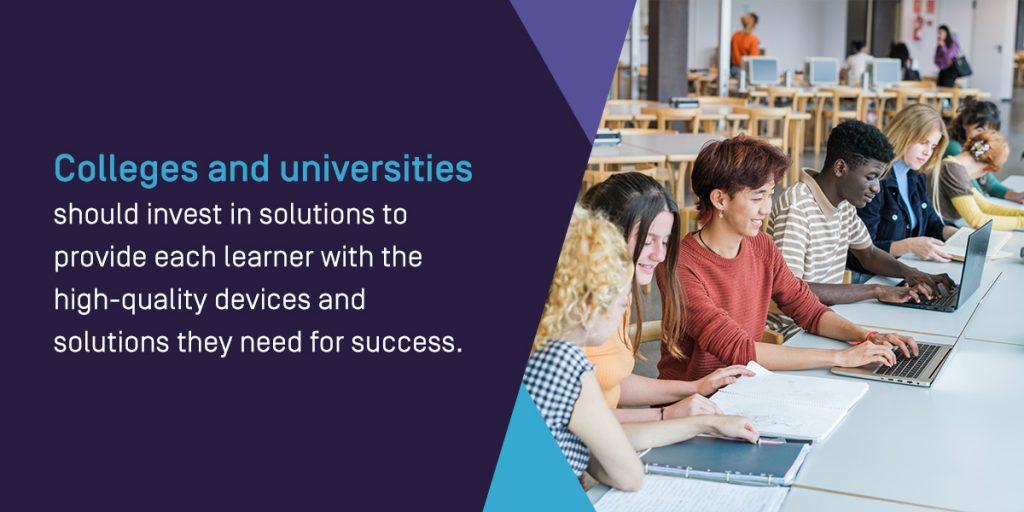
Your higher education institution can effectively support equity by taking steps to address the digital divide. This divide refers to the disparities regarding the technologies and internet connectivity available to each student.
Colleges and universities should invest in solutions to provide each learner with the high-quality devices and solutions they need for success. You may develop computer labs, establish a borrowing system for loaner devices, or extend free Wi-Fi across campus. All of these efforts allow your institutions to provide greater access to AI tools, helping to close the gap.
Regularly evaluate AI tools
Another way to ensure your institution is supporting educational equity is by routinely auditing your artificial intelligence solutions. These evaluations will help you identify and counteract bias in the AI algorithm to avoid negatively impacting your students.
Your institution should establish artificial intelligence policies with fairness, ethics, and equality in mind. Creating strict guidelines for AI development and deployment is a great way to mitigate biases before they influence the solution’s outputs. With the right policies and auditing practices, your college or university can improve your AI tools and provide students with technology that truly serves them.
Integrate AI education and instruction into curriculum planning
Higher education institutions can boost equity in education by integrating artificial intelligence topics into curriculum development.
AI tools are becoming increasingly popular, so providing additional instruction where possible in different courses can be highly advantageous. You can expose more students to the powers of AI, important ethical implications, and how they can apply these tools to their workload and real life. Taking every opportunity to teach more of your students about the impacts and capabilities of AI will benefit your institution.
Provide faculty with AI instruction and education
In addition to providing students with education on AI tools, your institution can ensure equity by extending these learning opportunities to your faculty. If your staff has a deep understanding of the implications of artificial intelligence and how to capitalize on its capabilities to boost learning outcomes, they will be a greater resource to your students.
Consider hosting mandatory workshops, training sessions, or seminars for your staff. These options will help them become more familiar with how to use AI tools and teach students about them.
Participate in research and advocacy
Your higher education institution can promote equity by participating in AI research and advocacy. By conducting research, your college or university can:
- Establish best practices.
- Learn how to quickly identify and combat potential biases.
- Inform decision-making regarding student uses.
Encourage discussion and exploration into artificial intelligence tools. Students should understand the potential negative implications of using AI in education. In supporting an open dialogue about AI and education equity, your institution can inspire more students to engage with this technology and find ways to use it fairly and ethically for all.
Request a demo of higher education software from Watermark
Watermark helps colleges and universities like yours harness the powers of continuous improvement. We’ve designed each of our solutions to help your institution evolve and deliver the best student experiences possible through strategic and data-backed decision-making.
With Watermark, you get valuable insights into your campus processes, helping you easily identify and address opportunities to boost educational equity. We are here to help you better support each of your students, no matter their background.
Request a demo of Watermark’s higher education software solutions to start improving your institution today.




































































